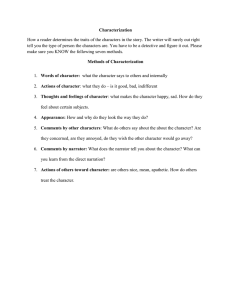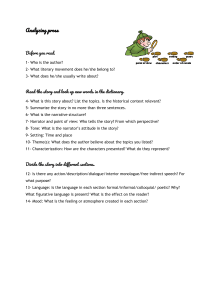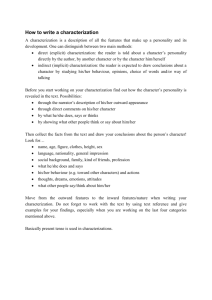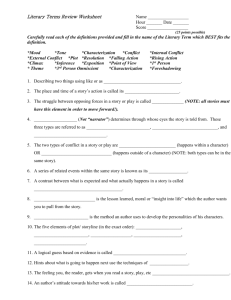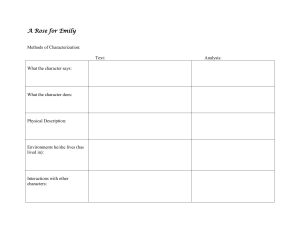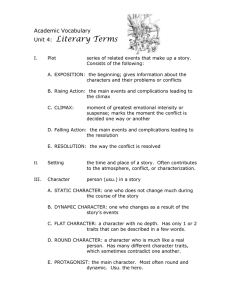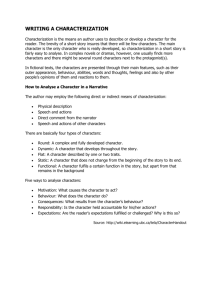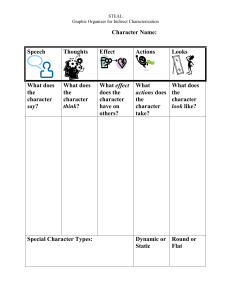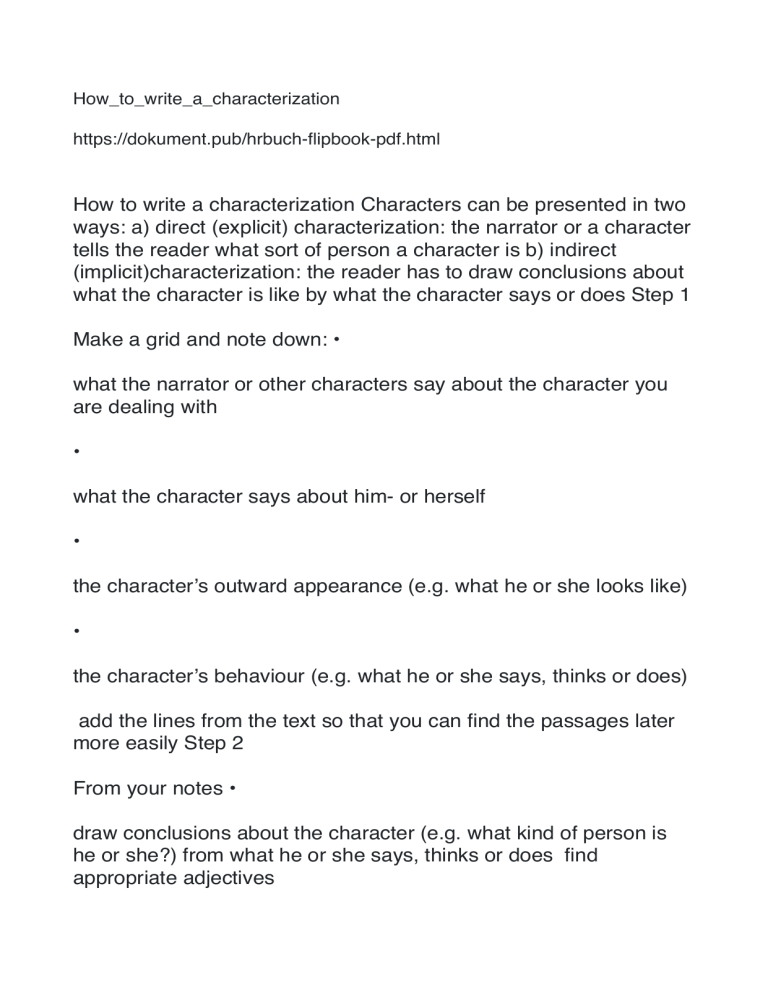
https://dokument.pub/hrbuch- ipbook-pdf.htm How to write a characterization Characters can be presented in two ways: a) direct (explicit) characterization: the narrator or a character tells the reader what sort of person a character is b) indirect (implicit)characterization: the reader has to draw conclusions about what the character is like by what the character says or does Step Make a grid and note down: what the narrator or other characters say about the character you are dealing wit what the character says about him- or hersel the character’s outward appearance (e.g. what he or she looks like the character’s behaviour (e.g. what he or she says, thinks or does add the lines from the text so that you can nd the passages later more easily Step From your notes 1 ) ) fi f fi l • n fl s • 2 draw conclusions about the character (e.g. what kind of person is he or she?) from what he or she says, thinks or does nd appropriate adjective h • • • How_to_write_a_characterizatio Write your introduction with the character’s nam the role he or she plays in the story (protagonist; antagonist; main / minor character • Step a general statement about the characte Write your main part with details about the character: outward appearance begin with his or her most prominent features and then follow with minor ones (but they should be relevant direct information about him or her (see step1 your conclusions from the character’s behaviour (see step 2 don’t forget to give reference from the text (lines and examples) to prove your statements follow the basic structure for every character trait: name it! – quote it! – explain it! (the order can be changed) Step Write your conclusion (the result of your analysis!) ) ) • r • ) r 3 • e ) 4 summarise what the reader learns about the characte 5 • • • write the adjective into the second column of your grid next to the information from the text Step don’t add any new aspects here Example of a grid to structure your notes Direct characterization (+lines Basic information (+lines) • • name, age, social position (job), family, ... outward appearanc Indirect characterization (+lines) • • • what is directly mentioned in the text (by the narrator or other characters) what the character says about him- or herself always ask yourself if you can trust his or her statements Your conclusion appropriate adjective behaviour thoughts feeling Example of a written characterization Introductio George Harker is one of the main characters in the story (title) by (author). He is th (character’s name, role and a general statemen narrator’s best friend and a teenager who does not easily accept other people s e n t • ! • s s e t . t ) Main par • • state whether the character has developed or stayed the same during the plo George Harker is the 15-year old son of a very rich family in Brighton. He lives in a basic information (+ lines elegant mansion and has known luxury for all his life (ll. 4-12). [… basic structure: (name it – quote it – explain it) explanation of behaviour – lines – result (adjectives In church, he makes puns of the quotes from the Bible (ll. 32-38), which shows that he is a very clever boy with a good sense of humour. However, the fact that he does not stop even after he and Bobby have been thrown out of the church (l. 41) indicates that it is dif cult for him to accept rules and to do what he is told. This disrespectful behaviour also becomes evident when he ghts with Miss White, his teacher, telling her that she is “an ugly old toad that lives in a swamp” (l. 52). [… Conclusio ] fi ) ] ) n n fl fi Finally, one can say that George is a very arrogant boy who is totally in uenced by his wealthy family. Therefore, he does not tolerate people from other social classes, and makes fun of nearly everything and everyone. This behaviour is criticised by most of the people outside his family. He even loses his best friend in the end. However, this incident does not make him change his attitude, on the contrary, he even seems to be proud of himself.
